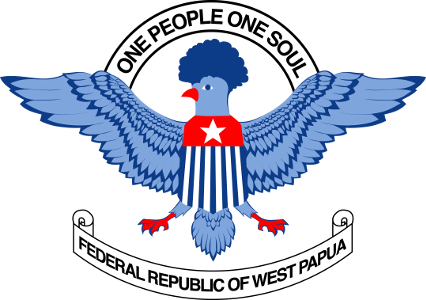MEDIA STATEMENT, 9 JULY 2018
West Papua National Army is constitutionally obliged to defend the territory and people it is responsible for, even as the Indonesian State continues to hunt the Papuan soldiers—and civilians—in the high-mountain forest.
During preparations for the election of a governor, the Indonesian government sent extra military, police and intelligence to the isolated highland regency of Nduga. The West Papua National Liberation Army (TPN PB OPM) responded by shooting a Twin Otter plane after it landed in Kenyam with 18 BRIMOB commandoes and 3 transmigrants.
Seventy Indonesian security forces then engaged in a ninety-minute shoot-out with the West Papuan soldiers during which the transmigrants (one of them armed) were killed. Egianus Kogoya, the local Papuan commander, then raised West Papua’s Morning Star flag in front of the Nduga Parliament, signalling the people’s continuing refusal to vote.
The Indonesian government then deployed anti-terrorist commandos. After four were killed, the commandos turned on the local people who fled to the forest. Shortage of food and medicine eventually forced their Regent, Yarius Gwijangge, to invite the Indonesian military and police to a peace ceremony, but they rejected his invitation unless or until he arranged for the West Papuan Army to surrender.
Any investigation of this election process must question why the Indonesian State—after sixty years of occupation and twenty years of ‘democracy’—maintains 1 highly trained commando for every 97 civilians in this isolated regency? And why so many more were deemed necessary for the fairly simple process of updating the voter registration?
The role of the West Papua National Liberation Army is unambiguous. Like any national defence force, it is constitutionally obliged to defend the sovereignty of the territory and the people it is responsible for, and it has fulfilled that duty since 1963 when the UN passed the administration of West Papua to Indonesia. According to the secular law of armed conflict, war may be undertaken as a means of redressing wrongs inflicted on innocents, or to force an aggressor to cease and desist from inflicting harm, especially when negotiation and other means have failed.
Jacob Rumbiak,
Spokesperson, United Liberation Movement for West Papua (ULMWP)
